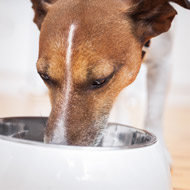
Products contain elevated levels of vitamin D owing to a supplier error
Hill’s Pet Nutrition has expanded its voluntary recall of canned dog food owing to elevated levels of vitamin D in some of its products.
Owners of dogs that may have consumed any of the following products are urged to dispose of the item and contact their veterinary surgeon:
| Product name | SKU Number | Lot/Date Code |
| Hill's™ Prescription Diet™ Canine i/d 360g | 8408U |
09 2020 T27 10 2020 T18 |
| Hill’s™ Prescription Diet™ Canine Recovery Pack 360g | 8409ZR | 09 2020 |
| Hill’s™ Prescription™ Diet Canine k/d 370g | 8010U |
09 2020 T27 09 2020 T28 10 2020 T26 |
| Hill’s™ Prescription Diet™ Canine r/d 350g | 8014U | 092020T28 |
| Hill's™ Prescription Diet™ Canine w/d 370g | 8017U | 102020T05 |
| Hill's™ Prescription Diet™ Canine z/d 370g | 8018U | 10 2020 T17 |
| Hill's™ Science Plan™ Canine Adult Advanced Fitness Chicken 370g | 8037U | 102020T27 |
| Hill's™ Science Plan™ Canine Mature Adult Active Longevity Chicken 370g | 8055U |
11 2020 T25 102020T14 |
Hill’s were made aware of the problem after receiving a complaint in the US about a dog showing signs of increased vitamin D levels. The investigation confirmed elevated levels of vitamin D owing to a supplier error.
Elevated levels of vitamin D can lead to symptoms of vomiting, loss of appetite, increased thirst, drooling and weight loss. Consumed at very high levels, vitamin D can lead to serious health issues in dogs, including renal dysfunction.
A Hill’s spokesperson said: “We care deeply about all pets and are committed to providing dog owners with safe and high-quality products. Hill’s has identified and isolated the error and, to prevent this from happening again, we have required our supplier to implement additional quality testing prior to their release of ingredients.
“In addition to our existing safety processes, we are adding our own further testing of incoming ingredients. All products within Hill’s control have been placed on hold. Hill’s will be contacting all clinics and retailers to retrieve products.”
The affected products were manufactured by the Hill’s facility in Topeka, Kansas and distributed through retail pet stores, veterinary surgeries and e-commerce. Cat food, dry food and treats are not affected.



 The latest
The latest